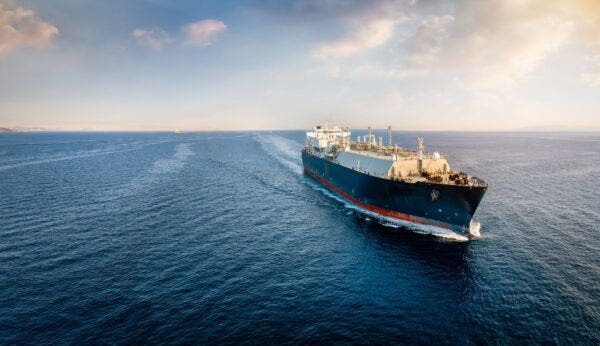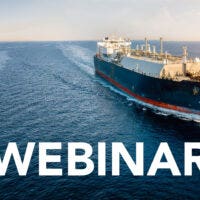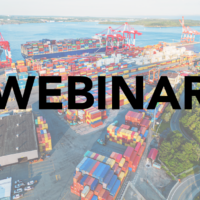In This Report, You’ll Learn About
- Liquefied natural gas (LNG), its uses and characteristics, including liquefaction, storage process and available technologies
- The socioeconomic and environmental risks and benefits of LNG as a marine fuel and energy source for the Arctic region of Canada
- The issues relating to the introduction and use of natural gas as a marine fuel in the Canadian Arctic, including safety, training, regulations, infrastructure required, costs and climate change implications
Project Summary
This project by the Canadian Natural Gas Vehicle Alliance (CNGVA), VARD Marine, and Clear Seas with support from Transport Canada’s Innovation Centre, investigated the feasibility, benefits, and risks of the use of natural gas to replace some or all of the current diesel and heavy fuel oil used in the Canadian Arctic.
Table of Contents
Key Takeaway
The technologies that support all aspects of using LNG as a marine fuel are well proven and no technological barriers preventing the use of LNG under Arctic conditions exist. The economic feasibility of LNG depends on a discount between natural gas and oil prices, because of the need to repay higher capital cost of new and retrofitted LNG systems on ships.
LNG’s ability to reduce air and water pollution may drive its growth as a marine fuel in support of meeting current and pending environmental regulations like the heavy fuel oil (HFO) ban(opens in a new tab). The environmental benefits of LNG include reductions in oil spill risk and emissions of carbon dioxide (CO2), sulphur oxides (SOX), nitrogen oxides (NOX), particulate matter, and black carbon. However, emissions of methane, a powerful short-term greenhouse gas, increase. The change in 100-year global warming potential CO2-equivalent emissions in the Canadian Arctic region from the different LNG implementation scenarios depends on which engine technology is used, with limited or no benefit from using the more common high-methane emissions engines and up to 29% reduction in greenhouse gas emissions from the less common low-methane emissions engines.
Perspective-Gathering Workshop
On January 25 and 26, 2022, Clear Seas held a virtual roundtable to help chart a future for marine shipping and the use of natural gas in the Canadian Arctic. The workshop brought together 40 people – participants and speakers – representing a range of opinions and perspectives from Traditional Knowledge to Western science.
Workshop Speakers, Presentations and Recordings
Day 1
Opening remarks – Meghan Mathieson, Director of Strategy & Innovation, Clear Seas
Watch the video(opens in a new tab)
Welcome and introductions – Lisa Koperqualuk, VP of International Affairs, Inuit Circumpolar Council Canada
Watch the video(opens in a new tab)
Overview of the Canadian Coast Guard in the Arctic – Neil O’Rourke, Assistant Commissioner, Arctic Region, Canadian Coast Guard
Watch the video(opens in a new tab) | Download the presentation(opens PDF)(opens in a new tab)
Arctic Shipping Traffic Changes: Health and Environmental Impacts – Dr. Nicolien van Luijk, Postdoctoral Fellow, University of Ottawa
Watch the video(opens in a new tab) | Download the presentation(opens PDF)(opens in a new tab)
Case for Banning Heavy Fuel Oil in the Arctic – Andrew Dumbrille, Lead Specialist, Marine Shipping and Conservation, World Wildlife Fund Canada
Watch the video(opens in a new tab) | Download the presentation(opens PDF)(opens in a new tab)
Climate Risks of Using LNG as a Marine Fuel – Bryan Comer, Marine Program Lead, International Council on Clean Transportation
Watch the video(opens in a new tab) | Download the presentation(opens PDF)(opens in a new tab)
What is LNG? – Jorge Lobo, Senior Manager, LNG Commercial and Industrial Projects, Fortis BC
Watch the video(opens in a new tab) | Download the presentation(opens PDF)(opens in a new tab)
LNG as a Baseload for Renewables – Calum McClure, CEO, Cryopeak
Watch the video(opens in a new tab) | Download the presentation(opens PDF)(opens in a new tab)
Arctic Shipping Risks to Ecology and Socio-Cultural Impacts – Erin Abou-Abssi, Director of Policy, Oceans North
Watch the video(opens in a new tab) | Download the presentation(opens PDF)(opens in a new tab)
LNG a Fuel in Transition – Adi Aggarwal, General Manager, SEA/LNG
Watch the video(opens in a new tab) | Download the presentation(opens PDF)(opens in a new tab)
Operation of LNG Powered Vessels in the Canadian Arctic – Chris King, Director of Operations, Group Desgagnés
Watch the video(opens in a new tab) | Download the presentation(opens PDF)(opens in a new tab)
Day 2
Arctic Marine Natural Gas Supply Chain Study: Project Overview – Bruce Winchester, Executive Director, Canadian Natural Gas Vehicle Alliance
Watch the video(opens in a new tab) | Download the presentation(opens PDF)(opens in a new tab)
LNG as a Ship Fuel for the Arctic: Results – Andrew Kendrick, Vice-President, Vard Marine
Watch the video(opens in a new tab) | Download the presentation(opens PDF)(opens in a new tab)
Supplying LNG for Ships and Potential to Replace Diesel as an Energy Source: Preliminary Findings and Environmental Tradeoffs – Andrew Miltimore, Mechanical Engineer, Vard Marine
Watch the video(opens in a new tab) | Download the presentation(opens PDF)(opens in a new tab)
Human Resources Opportunities and Challenges for LNG Use in Marine Applications and the Supply Chain; Regulatory Challenges Impacting Supply Chain and Marine Operators – Andrew Kendrick, Vice-President, Vard Marine
Watch the video(opens in a new tab) | Download the presentation(opens PDF)(opens in a new tab)
Project Next Steps and Remaining Tasks – Bruce Winchester, Executive Director, Canadian Natural Gas Vehicle Alliance
Watch the video(opens in a new tab)
Discussion
Watch the video(opens in a new tab)
Additional Resources
Presentation to Working Group: Implementation Scenarios
Watch the video(opens in a new tab) | Download the presentation(opens PDF)(opens in a new tab)
Presentation to Working Group: Benefits to Canada’s Arctic
Watch the video(opens in a new tab) | Download the presentation(opens PDF)(opens in a new tab)
Research Team

Paul Blomerus
Executive Director, Clear Seas

Meghan Mathieson
Director of Strategy and Engagement, Clear Seas

Chloe Scott
former Research Associate, Clear Seas

Andrew Kendrick
Principal Consultant, VARD Marine

Andrew Miltimore
Mechanical Engineer, VARD Marine

Sarah Thomson
Quality Manager and Engineer, VARD Marine




